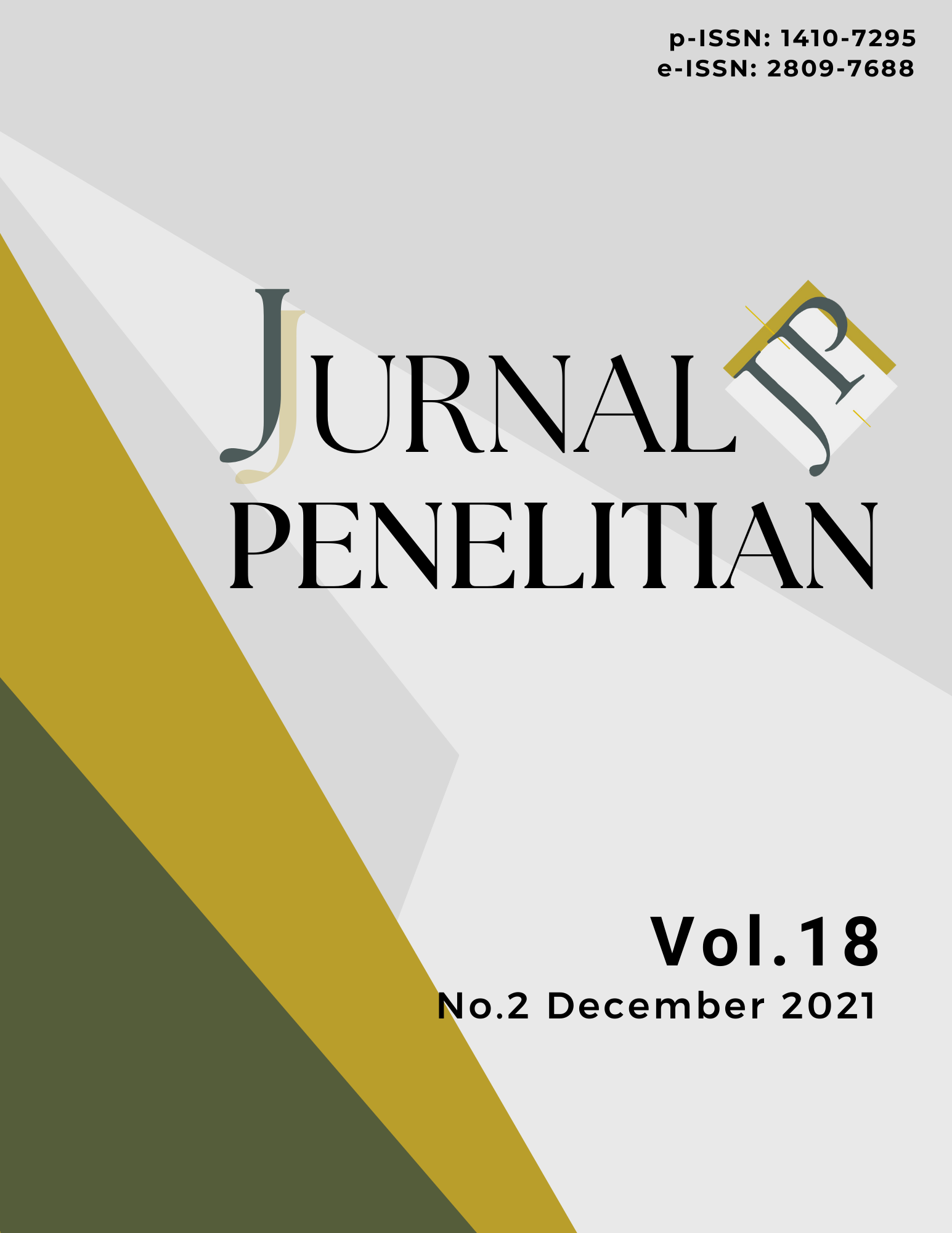Using of the Learning Management System on motivation and learning outcomes in the "Merdeka Belajar Kampus Merdeka" Program
DOI:
https://doi.org/10.26905/jp.v18i2.7047Keywords:
Learning Management System, Learning motivation, Learning outcomesAbstract
Learning Management System (LMS) is a virtual space where learning activities are carried out remotely. LMS is an innovation in learning that is very useful during the COVID-19 pandemic and MBKM activities to facilitate distance student exchange. LMS should have facilities that are able to encourage learning motivation which will ultimately have implications for learning outcomes. This study examines the effect of using LMS on learning outcomes by placing learning motivation as an intervening variable. The sample of this research is students who use LMS, both MBKM participants and not in the 2020 academic year even. By using path analysis, this research proves that the use of LMS has an effect on student learning motivation, the use of LMS and student learning motivation has a significant effect on learning outcomes, and student learning motivation can be an intervening variable in this research model.
Downloads
References
Atma, B. A., Azahra, F. F., Mustadi, A., & Adina, C. A. (2021). Teaching style, learning motivation, and learning achievement: Do they have significant and positive relationships?. Jurnal Prima Edukasia, 9(1), 23-31. https://doi.org/10.21831/jpe.v9i1.33770
Cohen, E. B., & Nycz, M. (2006). Learning objects and e-learning: An informing science perspective. Interdisciplinary Journal of Knowledge and Learning Objects, 2, 23–34.
Cook, D. A., & Artino, A. R. (2016). Motivation to learn: An overview of contemporary theories. Medical Education, 50(10), 997–1014. https://doi.org/10.1111/medu.13074
Cudney, E. A., Ph, D., & Ezzell, J. M. (2017). Evaluating the impact of teaching methods on student motivation. Journal of STEM Education, March, 32–50.
Dwijuliani, R., Rijanto, T., Munoto, Nurlaela, L., Basuki, I., & Maspiyah. (2021). Increasing student achievement motivation during online learning activities. Journal of Physics: Conference Series, 1810(1). https://doi.org/10.1088/1742-6596/1810/1/012072
Filgona, J., Sakiyo, J., Gwany, D. M., & Okoronka, A. U. (2020). Motivation in learning. Asian Journal of Education and Social Studies, September, 16–37. https://doi.org/10.9734/ajess/2020/v10i430273
Gilbert, J., Morton, S., & Rowley, J. (2007). E-learning: The student experience. British Journal of Educational Technology, 38(4), 560–573. https://doi.org/10.1111/j.1467-8535.2007.00723.x
Ghozali, I. (2009). Aplikasi Analisis Multivariate dengan Program SPSS. Semarang: UNDIP.
Hornstra, L., van der Veen, I., Peetsma, T., & Volman, M. (2015). Innovative learning and developments in motivation and achievement in upper primary school. Educational Psychology, 35(5), 598–633. https://doi.org/10.1080/01443410.2014.922164
Jethro, O. O., Grace, A. M., & Thomas, A. K. (2012). E-learning and its effects on teaching and learning in a global age. International Journal of Academic Research in Business and Social Sciences, 2(1), 203.
Pertiwi, T., & Sumbawati, S. (2019). Pengaruh penggunaan learning management system berbasis chamilo dan motivasi terhadap hasil belajar siswa SMK Kelas X pada Mata Pelajaran Sistem Komputer. It-Edu, 3(02), 88–97.
Sanusi, A. (2011). Metodologi Penelitian Bisnis. Salemba Empat.
Schunk, D. H. (2004). Achievement motivation in academics. Encyclopedia of Applied Psychology, Three-Volume Set, 1, 35–40. https://doi.org/10.1016/B0-12-657410-3/00836-9
Swastika, A., & Lukita, G. (2020). Motivasi belajar dalam pembelajaran daring berbasis Learning Management System (LMS) schoology Pada Mata Kuliah Probabilitas. Indonesian Journal of Instructional, 1, 9–13.
Downloads
Additional Files
Published
How to Cite
Issue
Section
License
Authors who publish in this journal agree to the following terms:
- Copyright of the published articles will be transferred to the journal as the publisher of the manuscripts. Therefore, the author confirms that the journal has managed the copyright.
- Publisher of Abdimas: Jurnal Pengabdian Masyarakat Universitas Merdeka Malang is University of Merdeka Malang.
- The copyright follows the Creative Commons Attribution-ShareAlike License (CC BY SA): This license allows to share, copy, and redistribute the material in any medium or format, adapt, remix, transform, and build upon the material, for any purpose, even commercially.


